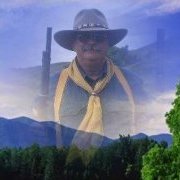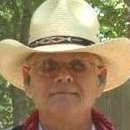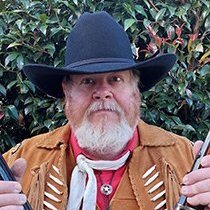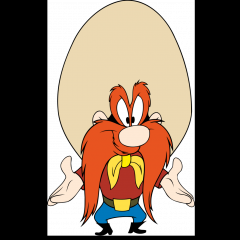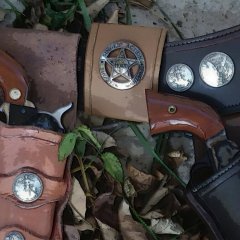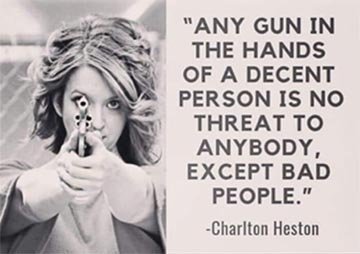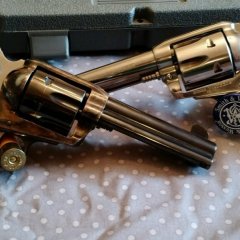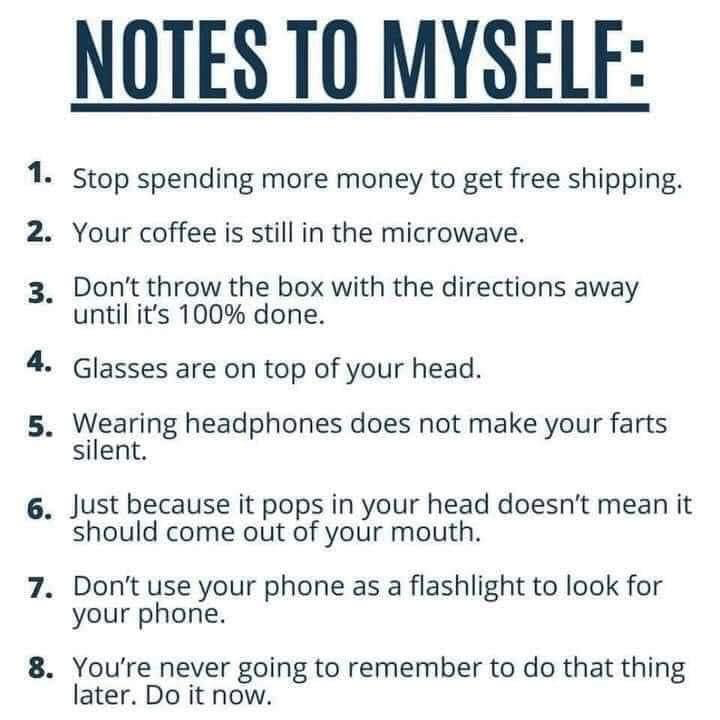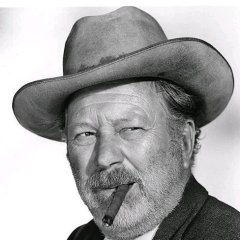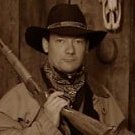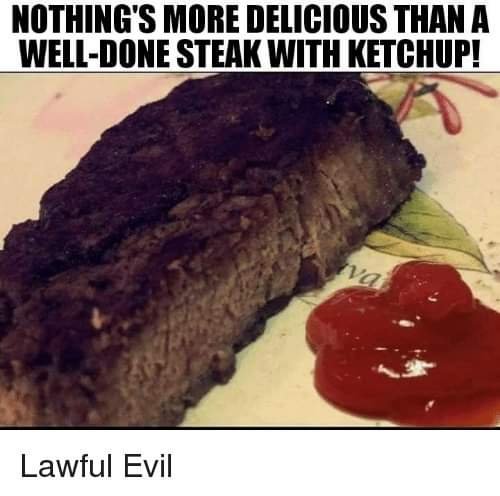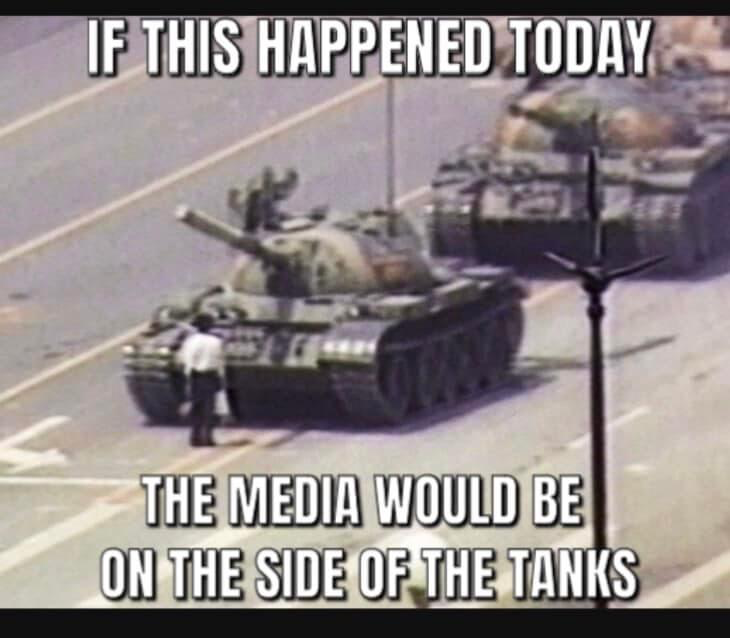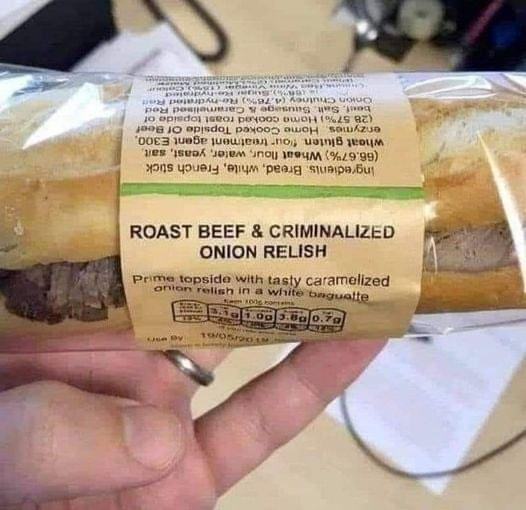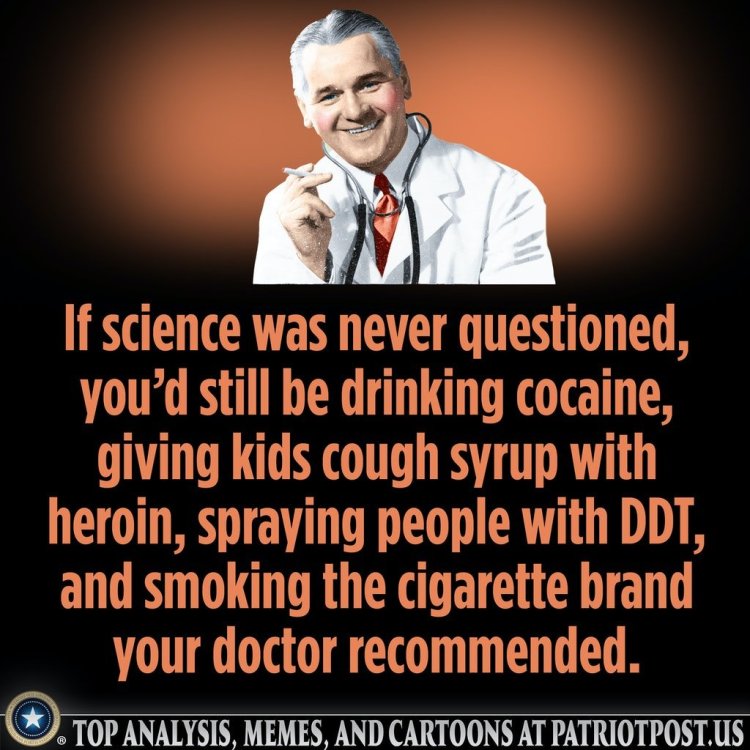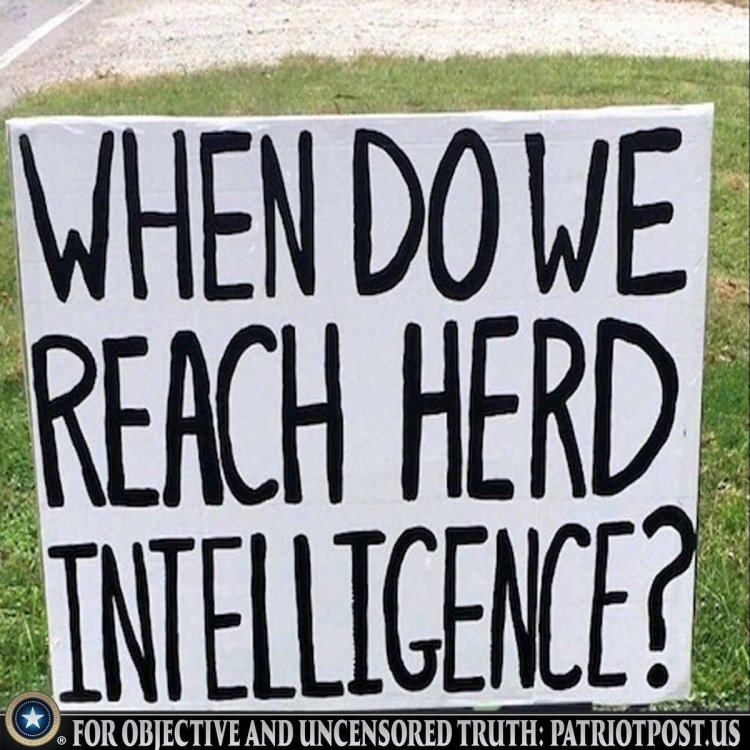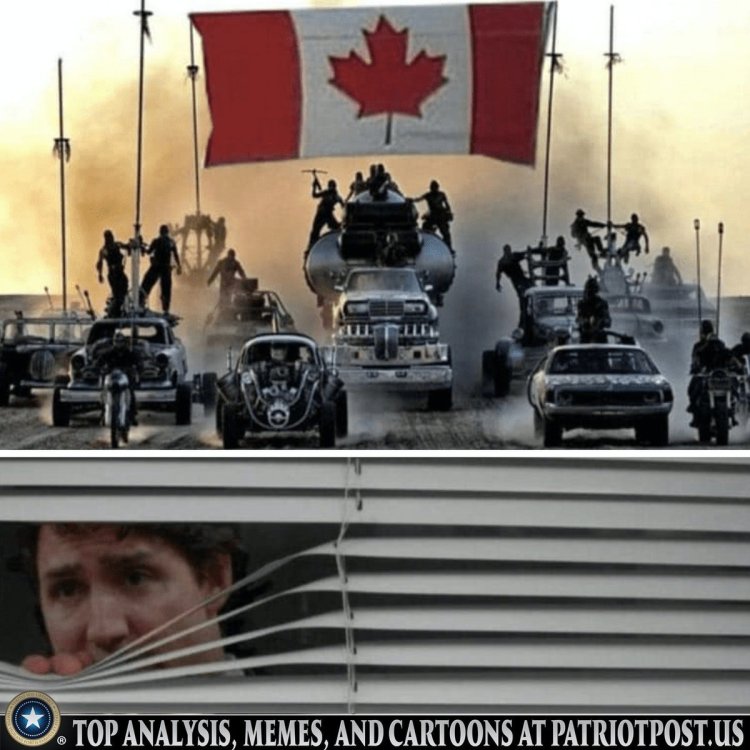Leaderboard
Popular Content
Showing content with the highest reputation on 02/17/2022 in all areas
-
Chaotic evil. Lawful evil contorts the law to serve evil purpose. There is no place where burnt steak and ketchup is lawful4 points
-
4 points
-
3 points
-
3 points
-
2 points
-
570. "SHE NAMED HIM AFTER MY HORSE" Marnie knew there was trouble. Marnie watched Shelly fold her arms and regard her husband with a cold, suspicious glare, and Marnie began thinking in terms of possibilities: it was possible there was going to be a disagreement, there was the possibility there might be violence, and if that happened, how would she respond. Marnie's tread was absolutely silent as she approached her parents, adrenalin singing in her veins and the taste of copper stinging her tongue as she walked nearer to what her gut told her could be a minor thermonuclear detonation. "Is there something you'd like to tell me?" Shelly asked icily. Linn looked up at her and raised an eyebrow, smiling just a little as he did. "As a matter of fact, and since you asked," he said, then looked at Marnie: "Could you fetch me that manila envelope off my desk, please." Marnie gave a brief, shallow nod, turned: she headed for the desk with no pretense of stealth, brought the envelope back. Shelly snatched it from her, seized the once-opened flap, ripped it open: she glared at her seated husband, reached in, tore the big yellow envelope apart in her short-tempered haste to evacuate the contents. She stopped, looked at the sheaf of papers, at the photocopy of a newspaper article and its accompanying picture, the photograph of a very familiar Appaloosa stallion and its very familiar rider, with lariat in hand: her pale-eyed husband was dismounted, standing beside an embarrassed looking young woman and two people with her, presumably her parents, with Apple-horse's head turned to face the camera squarely. The article itself bore a bold headline: DARING RESCUE FROM HORSEBACK, and beneath, Western Sheriff Saves Local Girl from Sudden Death, with a byline and a date. Behind this, on a village's official stationery, a letter of commendation; another, from the jurisdictional police department: confused, Shelly looked at her husband, who turned his laptop around to show a young woman in a pink trimmed nightgown, holding what was obviously a very young infant: the woman looked damp, exhausted, and was still in a hospital bed, and Linn enlarged the text beneath so Shelly could read the message. I named him Paul, she read, and beneath, I hope you don't mind, but I named him after your horse. Linn raised an eyebrow as his wife's body language and expression became less hostile and more chagrined. "Do you want to take a swing at me now," Linn said quietly, "or shall I tell you what happened?" Sheriff Linn Keller laughed as he shook hands with an old and dear friend, a man with whom he'd worked years before: Curt Frazee had just made Detective and Linn went East to visit with the man and meet his family. "Bring your horse," Curt told him, "my boys are just crazy to meet a genuine Western Sheriff!" -- and so Linn and Apple-horse rode East, though most of their journey was behind the horsepower of a hired Diesel engine: they arrived at the village just in time to get caught up in their annual Homecoming Parade, and Curt insisted Linn ride in it. "Oh, hell," Linn complained, "I'm the only mounted unit?" "You'll get first place for the Mounted division!" Curt laughed. "Here, I'll slip a note to the judges so they can announce you as visiting from Colorado!" "Oh, hell," Linn muttered again, shaking his head. "All right. Apple, you up for this?" Apple-horse responded to a signal -- invisible to anyone else -- Linn's slight gesture brought a vigorous, exaggerated head-nod, gaining him a jaw-rubbing and a molasses twist bribe. Curt's two little boys were big-eyed and delighted, having been raised on a steady run of Westerns on DVD; they stood back in absolute awe at this lean-waisted, pale-eyed lawman who wore a genuine cowboy revolver in a carved-leather holster and he rode a horse and he had a rope and everything! The parade was as are as all small town parades: confused, stressed, messengers carrying suddenly urgent communications to this unit, or that unit, at least until the parade started -- then, as always happens, everything fell into place. Linn was between the marching band and the VFW float, pulled by a redbottom Ford tractor: Linn grinned and waved self consciously, wondering to himself why in the world he let himself get talked into this. His head was on a swivel, as it always was: it occurred to him that, as a lone rider, between units he would make a fine target for a sniper: his Winchester rifle was in its scabbard, his revolver was on his belt, but he couldn't shake the feeling that something just wasn't right -- and Apple-horse felt it too, or perhaps he picked up on Linn's discomfiture. Apple started to dancing sideways, the way he did when he wasn't happy, and Linn let him dance: it looked fancy and it let his stallion discharge some nervous energy, and that was working pretty well until Apple decided he wanted to show off, and Linn caught his Stetson after it flew off his head. Apple managed two fast bucks before Linn grabbed his skypiece and kept it from hitting the ground: it was completely accidental, but it looked really good -- and Linn was too busy bucking out to consider how good it had or had not lappeared. There was only a brief delay while Apple threw his little fit, spinning, sunfishing, rearing: Linn swatted him fore and aft with his Stetson, raking nonexistent spurs, feeling the shock clear up his spine: Apple gave a final triple-hop, stopped, legs spread a little, head down: Linn settled his Stetson back on his head and said "Yup, boy," and Apple-horse shivered his hide like he was shaking off a pesky fly and stepped out, just as nice as you please, following the marching unit as if nothing had happened. Linn's head came up and his eyes met Curt's. The detective was at a police cruiser, standing outside the door: he had microphone in hand and was in some urgent communication. He looked up at Linn, gestured him urgently over. Horse and rider, when properly matched, are one living soul: Linn did not have to tell Apple what he wanted, Apple-horse raised his head and his tail and trotted smoothly over to the cruiser. Curt's face was white. "Linn, we've got a girl committing suicide and we can't get there for the parade." Curt looked at Apple. "You could make it." "Whither away?" Linn demanded, and he felt war rise in his soul: Apple-horse threw his head, reared, clearly eager to ride the rising tide of adrenaline he smelled rolling like a cloud from the saddle. Curt chopped a hand straight out: "Three hundred yards that way," he said, "she left a suicide note and she's walking in front of the freight." Linn swore: his head came up at the sound of a Diesel horn -- not the usual crossing whistle, it was long, sustained blasts, a locomotive engineer's desperately warning someone off the tracks. "YAAHH!" Apple-horse whirled, streaked across in front of the red-bottom Ford tractor, ears laid back, nose punched into the wind: Linn leaned forward, hands flat on Apple's neck, yelling encouragement as Apple shoved hard against concrete, lifted his forelegs, soared into the air (and over a delighted, open-mouthed pair of schoolboys) and pounded across the open field. Curt ran after him, as did nearly a dozen spectators: phones were raised, hoping to capture whatever insanity was about to transpire. Linn saw the freight coming and coming fast. He saw a young woman walking down the tracks, a pillow wrapped around her head -- presumably to block the sound of the freight roaring up behind her. "RUN, DAMN YOU, RUN!" Linn screamed, dropping into the seat and pulling his lariat free: he'd have only one shot -- he was running crosswise to the tracks, Apple-horse was punching a hole in the wind as he ran, Linn's eyes were pale, he aimed between Apple-horse's laid-back ears like he would aim a rifle's barrel -- Apple-horse soared over the gravel ballast, over shining steel rails -- The loop floated, dropped, Linn made a quick double-turn around the saddlehorn -- Plaited leather snapped taut, dug painfully into Linn's thigh: when close to half a ton of hard-running horseflesh comes to the end of that springy line, a girl of barely a hundred pounds stands no chance at all of resisting the unmistakable summons to GET THE HELL OFF THE TRACKS!!!! Linn leaned back -- "Ho!" he barked, and Apple-horse's haunches dropped, he stiff-legged into a fast stop, backing as he'd been trained, waited while Linn launched out of the saddle and went to one knee beside the girl. "She left a suicide note," Linn continued quietly: Shelly had settled into a chair, Marnie as well, and both listened, seeing the scene in living color as his words painted the picture. "She could not live with the disgrace of coming home pregnant and unmarried, and so she took the pillow from her bed and took off walking down the tracks. She'd wrapped the pillow around her head so she could not hear the train coming up behind her." "Dear God," Shelly whispered. "And you saved her," Marnie said. Linn nodded. "She named the baby after Apple." "Appaloosa, Paul," Linn said. "I reckon you could say that." "Don't tell Apple," Marnie said quietly, rising: "He'll get such a swelled head he'll be absolutely insufferable!" Linn watched his daughter's retreating backside as her red, fancy-stitched cowboy boots took her out the front door, waited until the door was closed. "Now," he said, shifting his pale eyed gaze to his wife. "Is there something you wanted to tell me?"2 points
-
569. I WAS DEAD TWO WEEKS AGO Shelly bit her bottom lip uncertainly. She heard, very faintly, the sound of Willamina's advancing cane: she imagined how the poor woman must be laboring, painfully, toward the door, using the cane to keep herself from falling, her hip complaining with the extra weight of that awkward, ugly walking boot -- Shelly blinked, surprised, as the door opened, as she beheld the Sheriff's face, flushed, damp, her eyes bright, glittering, seeming on the edge of tears: Shelly's mouth opened and stayed that way as Willamina reached out, laid a hand on her shoulder -- and laughed. The near-retirement Sheriff pulled Shelly in, closed the door: she leaned against the hallway, smiling, looked at Shelly, looked back toward her desk, shook her head and laughed again, leaning her head back against the age-darkened hall panels: she pointed with her cane, her face turning an incredible shade of scarlet, and she was obliged to wipe the mirth and merriment from her cheeks, where laughter spilled from her eyes and ran wet down her cheeks. It took a while for her to calm down her Hysterical Bubbles so she could breathe, a few more moments before she could speak: she thumped and hobbled her way into her kitchen, whacked a chair with her cane, pulled out another, sat: she finally took a deep breath, blew it out, looked at her visitor and said, "You'll have to get your own cookies and coffee. Coffee's made, cookies are in the keeper on the counter." Shelly opened the cupboard, withdrew two sizable mugs: she poured coffee, unfast the airtight lid from the cookies, set the plate on the table, placed one steaming, fragrant mug in front of Willamina, hers went to the opposite side of the table, and it was not until milk was drizzled, not until the hospitable beverage was sampled, that conversation started, and not in a way Shelly was really expecting. She'd come to Willamina's house feeling like a bucket of stirred-up creek water, turbulent and uncertain: now she sat in this immaculate, familiar kitchen, this one place that felt so very much like home, as much so as her own kitchen, and she looked at Willamina, who looked back with a knowing smile. "Do you know," Willamina said quietly, "that a recent study of a hundred and a half pulmonary hypertension patients saw more than half die in the first year?" Shelly's worried eyes widened a little more. Willamina nodded, took another bite of cookie. "Mm-hmm," she nodded, took a noisy, un-ladylike slurp of coffee. "I did some more research on my conditions -- the Internet's a wonderful thing -- do you know what I found out?" Shelly shook her head fearfully: her eyes were wide, worried, and she realized she'd taken several sips without tasting the coffee at all. Willamina placed her mug on the table, placed both palms flat on the checkered tablecloth, leaned forward a little: "I fed in all my symptoms and discovered I died two weeks ago!" Shelly was in mid-sip when Willamina made her intensely pale-eyed pronouncement: she snorted into her cup, splashed her face, coffee ran down her chin: Willamina picked up a cloth napkin, tossed it: Shelly felt something cloth hit her face, reached up blindly, wiped the embarrassment from her face, wiped her closed eyes, looked at Willamina, and she could not help herself. She laughed. Something unwound inside her, something that had been worried and twisted up tight: it uncoiled, relaxed, and the laughter of two women filled the solid old house that had housed one pale eyed Sheriff or another for well more than a century. Shelly felt something heavy and warm rest itself on her thigh and her hand floated down and caressed The Bear Killer's head: she felt his welcoming groan vibrating in his black-furred throat and she barely saw his huge brush of a tail swinging in her peripheral vision. "You've been worried about me," Willamina said quietly. Shelly nodded. "You lost both your grandmothers and all of your aunts." Shelly nodded. "Your mother passed a year before you met Linn." Shelly's eyes dropped and she nodded again, fingertips just touching the reassuring warmth of the heavy ceramic mug. "And you were afraid you were going to lose me." "You're the only Mom I've got left," Shelly whispered, her eyes hollow, haunted. Willamina nodded, thought for a long moment. "Shelly," she finally said, "you are going to lose me." Shelly looked up, alarmed. "I am going to die. So are you, so will Linn and Jacob and Marnie. Everyone you know will die, sooner, later, sometime. Nobody gets out alive." "That's not helping," Shelly said miserably. "I've died three times, Shelly. I've seen the Valley. I know what comes after and I'm not afraid." Shelly's eyes widened -- alarm was replaced with curiosity -- Willamina waved a hand, shook her head. "Long story, maybe some other time. The point is" -- she looked very directly at Shelly -- "I'm alive right now. Yes, I have pulmonary hypertension. Yes, it can cause sudden death. So can a meteor or some drunk running a stop sign, I could trip and fall and break my neck or have a subdural or go face first into a mud puddle and drown. The point is" -- she lowered her head a little, her gaze intense -- "I'm still here and you're still here and there's still work to be done. Besides" -- her smile was sudden, bright, actually ... actually joyful, as if an Artesian spring of delight were bubbling inside her, and flowed up into her face to light it from within -- "I still have grandchildren to spoil!"2 points
-
Hey Muddy ; You coming to Canada to shoot this year ? Jabez Cowboy That ought to make him Grumpy ...2 points
-
2 points
-
1 point
-
1 point
-
1 point
-
My great, great, great, great, great grandfather CONRAD, fought against the dirty, rotten rebel rabble for the king as a member of Butler's Rangers. He had to flee to Sillsville, Ontario.1 point
-
1 point
-
1 point
-
568. MAN OF WAR, MAN OF PEACE Parson Belden drove his elbow into the man's kidneys. Hard. The preacher -- his worn-soft Bible still in his off hand -- reached around, seized the cocked pistol. He ran a thumb ahead of the hauled back hammer, seized the machined steel frame, stripped it from the agonized man's grip: the Bible went up under his arm, was clamped down between upper arm and ribs, his fingers had eyes of their own as he lowered the hammer, half-cocked it, rotated the cylinder while backing away from the brawl, letting shining brass bottleneck cartridges hit the floor as he pulled back. A quick check, a flip of the loading gate: he felt it snap shut, there was too much noise from the knock-down, drag-out festival of fists to hear the quiet, metallic sound of the blued-steel gate's return to normal position. Parson Belden flipped the revolver, caught it by the barrel, turned the handle up out of the way, and waded into the general melee, laying left and right like Samson with the jaw bone of a jack mule. The Parson had been in that damned War, as had many there in town; he was no stranger to violence, and he'd learned the hard way never to lose concentration, to never stop thinking, even in the heat of a skirmish: he backed up a half step, dropped his Scripture into his hand, turned, tossed it behind the altar rail where it would be safe, and then he came back in. As quickly as it started, it was ended. Sheriff Linn Keller tilted up the beer and took a long drink. His was a roaring appetite and he had a thirst to match: for all that the saloon was named Number Seven, there was no One through Six: this did not interfere with its being well attended, for it had food, it had drink, it had occasional dancing girls and it had cheap and tawdry entertainment, both gambling downstairs, and girls upstairs, none of which concerned the Sheriff. It was in his county, yes; he was Sheriff, yes; he did not, however, concern himself with the usual usury, graft or strongarm squeeze of their profits: no, he preferred to leave its regulation to Law and Order Harry Macfarland, and Harry did a fine job of keeping the peace. Linn chewed good back strap and swallowed. He was after a man and he was not done yet; he'd like to have attended the funeral back in Firelands, but people in hell wanted ice water, and that hadn't worked out either, so he stopped for sustenance and whatever casual gossip he might encounter in this favorite local watering hole. Linn's ear picked up a conversation: he turned his head slightly, lifted his chin: the barkeep refilled his beer, laid down another thick sandwich, and Linn proceeded to slouch against the bar, lifting his refilled, foam-dripping mug to hide a slight smile as he considered that bad news moved faster than the Sheriff: he considered the speaker's account of a good old fashioned knock down drag out brawl in the church over in Firelands, something to do with harsh words spoken at a man's funeral. Doc Greenlees sewed up two lips, three scalps one cheekbone and a split open chin. He assessed the amount of blood in one sufferer's water, dissolved some bitters in steaming-hot water, let it cool a little and had the blood-passing man with aching kidneys drink it down without taking a breath: his several patients, having sobered up in a hurry, agreed universally and rather ruefully that it did not profit much to throw a knuckle party at a funeral, because attair preacher just did not have no sense of humor a'tall about the situation. Sheriff Linn Keller removed his Stetson as he crossed the threshold into Carbon Hill's Catholic church. He always did like the way it smelled, bees wax candles and incense and cedar wood: he knew it was the custom to drop a knee toward the Altar, to show due respect for the Host: as Linn was not Catholic, he inclined his head gravely toward the East, indicating his own respect for the institution. He advanced down the aisle, sought out the priest: he spoke quietly to the man, showed him the wanted dodger: the priest's eyes shifted toward the closed door of the confessional, and Linn stepped quickly to the door, threw it open -- Empty. He turned as the priest looked patiently at the pale eyed lawman. "He was here yesterday, Sheriff," Father Meyer said quietly. "I heard his confession, and he left." "Horseback, stage, train?" Linn asked, and the priest smiled sadly. "He was walking, Sheriff. His horse was lamed and he sold his saddle, he had a meal and he left." Linn's chin lifted. "Whither away, Padre?" "East, toward the rising of the sun." Linn nodded. "Thank you, sir." "Sheriff?" Linn raised an eyebrow, looked very directly at the tonsured cleric. "You will not find him alive." "I know." Parson Belden drew the reins gently: "Ho, there, ho now, ho, girl," he called, and the rented mare stopped, dropped her head as if ready to collapse, the way she always did. Parson Belden climbed down, walked over to the man's unmoving form. A Derringer punched quickly toward his face. The Parson's reflexes were good before he swore into Ohio's volunteer infantry, and they did not get any slower for having surviving that damned war: he seized the wrist, shoved it from him, twisted: the Derringer fell, unfired, and the Parson's knee drove straight down into the supine man's gut, knocked every bit of wind out of him. The Parson looked up as a shining-gold stallion stopped, as a pale eyed man looked down upon the scene. "Friend of yours?" Sheriff Linn Keller asked dryly, and the Parson could not help but laugh, and wonder how in the world he could possibly work this into a Sunday sermon.1 point
-
1 point
-
1 point
-
Great memories from days gone by! Lots of pards are no longer with us! I really miss those days. 1989-present. Still shooting and I will be there for the first EOT in Carefree Arizona!1 point
